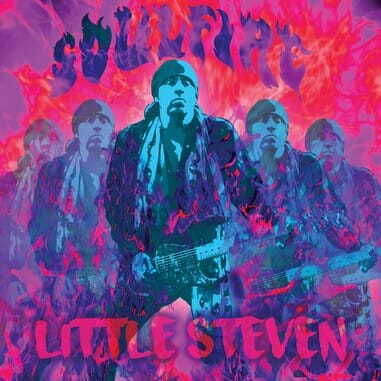Little Steven: Soulfire

Strip away The Sopranos, the Underground Garage, the bandana-clad Springsteen sidekick role, the hyper-political Sun City all-star single and what you get is a true believer in the power of rock & roll. Little Steven, the guitar-wielding Jersey kid who played the oldies circuit with the Dovells before running off with the E Street Band, is fluid in the modalities of sweet soul, vintage rhythm & blues, stripped down rock and that sweeping Leiber-Stoller song sense.
After a solo career that leaned more to the political, albeit Tri State area-steeped musicality, Soulfire is Van Zandt’s first true homage to his roots. Mining songs from across his production work for others—with nods to Chicago blues (Etta James’ “The Blues Is My Business”) and Blaxploitation (“Down and Out in New York City,” from James Brown’s Black Caesar soundtrack)—the project serves as a career retrospective for a solo artist who’s now truly emerging.
With a tight wrist figure flickering against an electric guitar neck, “Soulfire” kicks off Steven Van Zandt’s first solo project in almost 20 years with an exultant flurry of wide open vocals, horn section rising and the backbeat pushing forward. Rockier than Motown or the Sound of Philadelphia, this is a joyous invitation to live and love that breaks down to a rhythm track and an exhortative enjoinder.
-

-

-

-

-

-

-

-

-

-

-

-

-

-

-

-

-

-

-

-

-

-

-

-

-

-

-

-

-

-

-

-

-

-

-

-

-

-

-

-








































